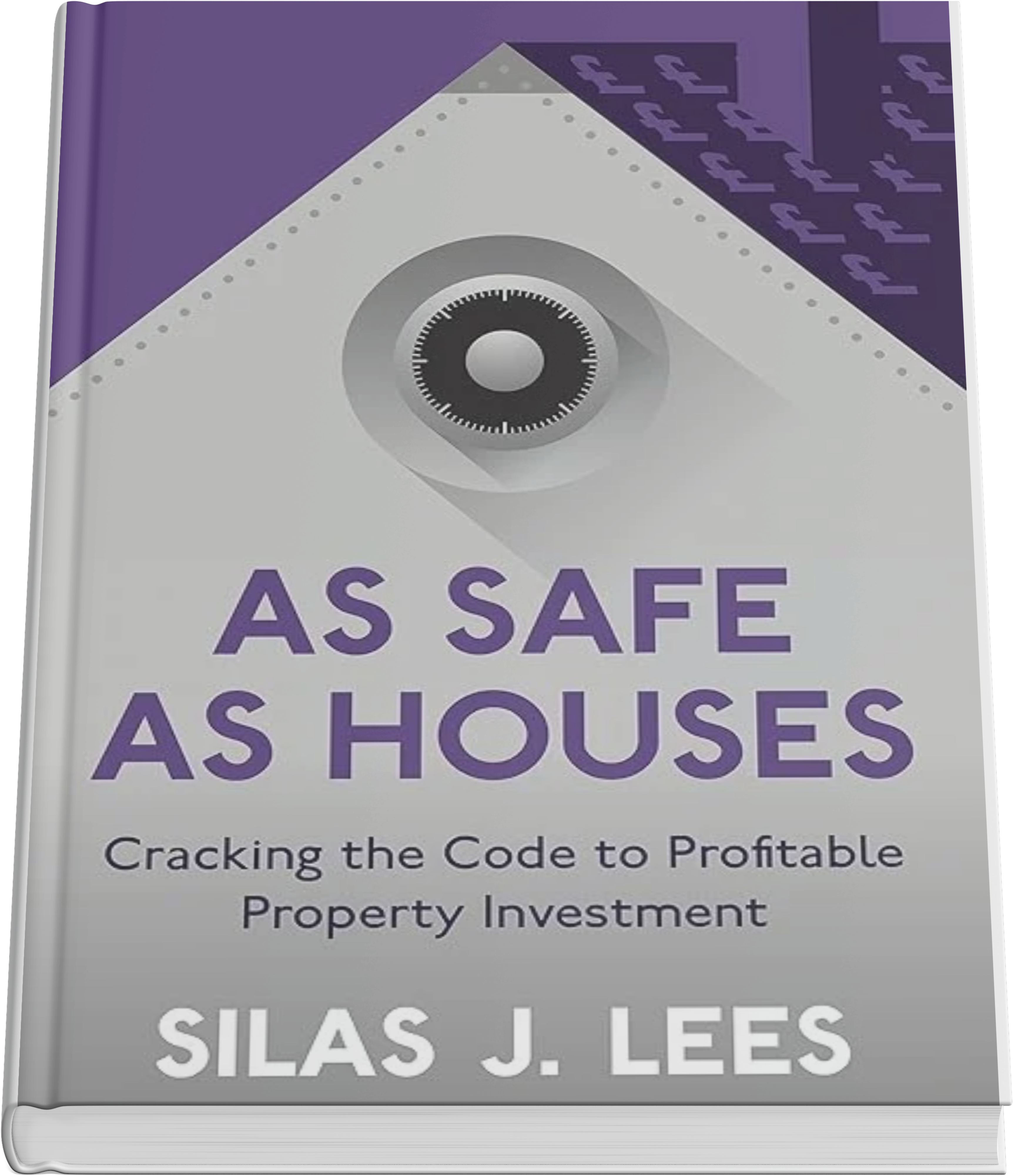The Value of Values
If you haven't read the outstanding book "Built to Last" by Jim Collins & Jerry Porras, you're doing yourself a disservice if you want to be successful in business over the long term.
One of the things I found most fascinating was how these university professors took the time to analyse companies who had been successful over a long period of time (we're talking scores if not hundreds of years), and compared them to their nearest rival. They looked at everything, and I do mean EVERYTHING to find the difference that makes the difference.
And do you know what they found?
It came down to one thing which made the market leaders outperform their nearest rivals by a factor of 10.
And that was having a concrete set of unchangeable values that they stood by no matter what – even if they were faced with circumstances where it would have been favourable to depart from them.
So why are values so important?
Having a set of values is crucial to the success of any organisation. A well-defined set of values guides decision-making and sets the tone for the company's culture. Crucially, they determine how the company will conduct itself at all times, and provide a standard all employees, managers and directors have to embody at all times.
Jim Collins argues that the most successful companies have a set of core values that they live by.
Defining Core Values
Before we discuss the importance of core values, let's define exactly what they are. Core values are the fundamental beliefs of a company. They guide the behaviour of its employees and influence the way the business operates.
Vitally, core values are not just words on a piece of paper, but principles that guide the actions of the firm.
Why Are Core Values Important?
Core values provide a framework for the company and its employees. They act as a compass, guiding decision-making and actions. Without a set of core values, it's easy for a business to lose its way and lose sight of what it stands for, especially when the day-to-day pressures of business life are applied.
In Built to Last, Collins studied the most successful companies in the world and found they not only all had a set of core values, but they actively lived by them. Collins argues that the most successful companies are those that have a set of core values that they never compromise on, regardless of the situation. These values guide their decisions, actions, and the way they operate.
How to Define Your Core Values
Defining your core values can be a challenging process. However, it's an important exercise which can have a significant impact on your organisation.
To define your core values, start by asking yourself some important questions, such as:
- What do we stand for as a company?
- What are our guiding principles?
- What are our non-negotiables?
- What do we want to be known for?
Once you've answered these questions, work with your team to create a list of core values. It's important to involve your team in this process as it helps to create buy-in and ownership of the values.
One mistake people make is having too many core values that are just word salads and add no real value to the company because people aren't inspired by them, or more importantly, aren't living by them. They're words on a piece of paper that might look good, but don't actually truly represent the company.
Think about walking into a bank and seeing their values on the wall as "Trust" or "Transparency" or "We treat our customers fairly." Then reflect on the 2008 financial crash which cost many people their homes, businesses and livelihoods.
Or you just got hammered with a financial penalty because of the bank's computer error and you're having to waste several hours of your day turning up in their branch to try and get it resolved. Do those values resonate with you? For most, they don't which is why the banking industry spends billions on marketing each year to try and win the trust of the public which falls flat on its face every time they pull one of these stunts.
Inauthentic at best.
If you're struggling to define your core values, look at the actions of the staff and the organisation as a whole. The phrase "actions speak louder than words" springs to mind as we usually do what we feel is right, whereas its easy to talk a great game.
If the company is embodying the highest levels of customer service through its actions, then clearly this is an important value to you. If you're available 24/7/365 to resolve customer issues, clearly this is an important value to you. If you believe in efficiency of operations, then identify this as one of your core values.
Then pass every value through the gut-feeling check of; "If it was advantageous for me not to live this value (because of threats of financial penalties, personal bankruptcy, or losing a key member of staff who didn't reflect the values for example), would I stand by it, or would I modify my behaviour to suit the situation?"
This is the ultimate litmus test as to whether a value is important to you or not. Only go with the 3-5 core values that you would literally 'die by the sword' for.
Living by Your Core Values
Once you've defined your core values, it's important to set the company culture up so everyone can live by them. This means the core values should guide every decision and personal action within the business. Your core values should be ingrained in your company culture and communicated to your employees on a regular basis so they're not overlooked or forgotten.
It's important to realise that living by a set of core values is not always easy. There may be times when you're faced with a difficult decision that goes against one of your values. In these situations, it's important to stay true to your values and not compromise on them.
Collins explained that those companies who outperformed their nearest rival by a factor of ten did so by sticking by their values at all times, whereas their nearest rivals almost always deviated in some way from what they held dear.
Conclusion
Defining your core values can be a challenging process, but it's an important exercise to do which can have profound and long-lasting impacts on your organisation more than any other activity you could invest your time into.
You may not get it right first time, and you may choose a set of values, live by them for a few months and then have to redefine them to ones that feel more "true" to the people who make up the organisation. This is perfectly ok to do and is all part of the process of defining those core values.
The most important thing to do is just do the work to establish what they are, not worry about having to be perfect!
An Example
For those who wish to take this activity seriously, here's an example of WiggyWam's values taken straight from our company handbook.
OUR VALUES
We strongly believe that all companies who are going to be successful over the long-term need to have established values. These are not just things that sound good and are hanging on a boardroom wall to impress visitors. These should be the values that each employee in the company are living and breathing on a daily basis and create a solid foundation for the company culture.
What's fascinating about values is whether the company and its members abide by those values in good times and bad. Everyone wants to be seen as honest and having integrity, but is it convenient to embody this value if doing so puts you in a financially worse position or threatens the reputation of the company in some way…?
Whilst it is not necessary for each company to share exactly the same values, companies within the same group structure ought to have an alignment of values. The guiding values of WiggyWam are highlighted below:
1. Act Revolutionary: We don't stand for the status quo. We don't stand for the way things have always been done in the industry because that's what's led us to the kind of problems we experience today; where moving home now takes 26 weeks and is the third most stressful thing people go through in their lives. To us, that is unacceptable. Gradual changes won't bring the results people need, so a revolutionary approach to solving these problems is the only way we believe things are going to get better. And we can have a lot of fun along the way implementing these changes for the benefit of all.
2. Be Trustworthy: This is fairly obvious, but to us, being trustworthy above all else is especially important because without trust, all is lost. It's very difficult, if not impossible, to re-establish trust once its lost. So, acting with honour and integrity in our business is essential.
3. Strive For Efficiency: We're all about efficiency by using technology as much as possible to bring those efficiencies to the marketplace so we can make things as easy and as effortless as possible, for all involved. That's not just the people moving home, it's for estate agents, conveyancers, surveyors, mortgage brokers, builders and tradespeople, removal companies and everybody else involved. We want to streamline the process and make it as efficient as possible.
4. Default To Convenience: To make the process really easy for people and speed up the housing market, things need to be really convenient. It's about making things as easy as possible for everyone involved (not just the buyer/seller and their solicitors).
5. Show Compassion: At WiggyWam, we recognise moving home is a very stressful process, yet as experienced property professionals, we have a wealth of knowledge and information that's kept hidden from most homeowners, tenants and landlords. Some people haven't moved home in 14, 20, or even 40 years! As a consequence, they have no knowledge about what's actually involved and the whole process is shrouded in darkness. Those working in the industry wrongly assume everyone knows as much as they do, yet this is a mistake. People wonder who they can trust and where do they go to for reliable knowledge and information? We feel it's down to us to share this hidden knowledge and information, through our books, articles, videos, and online learning centre to help others out and help us to meet the rest of our values.
When you subscribe to the blog, we will send you an e-mail when there are new updates on the site so you wouldn't miss them.







Comments 1
Brilliant article, Silas and great set of values.
Act Revolutionary is one that resonates.
Far too much incremental improvement in this sector from #estateagency trainers that earn more the slower the change.